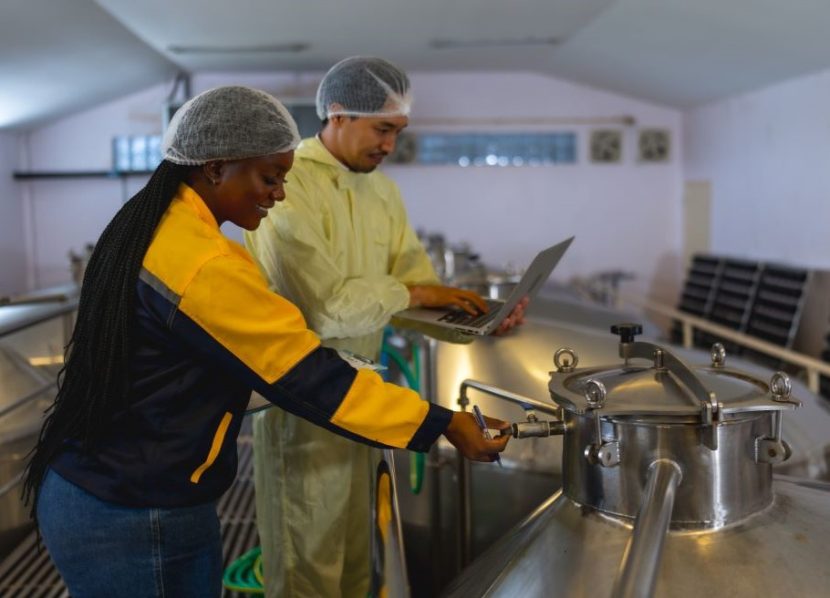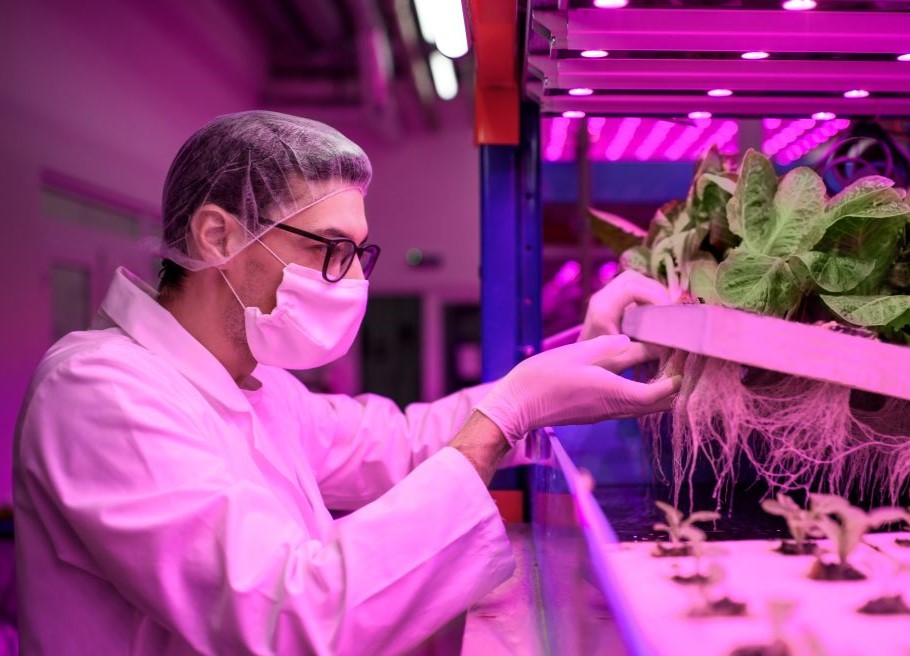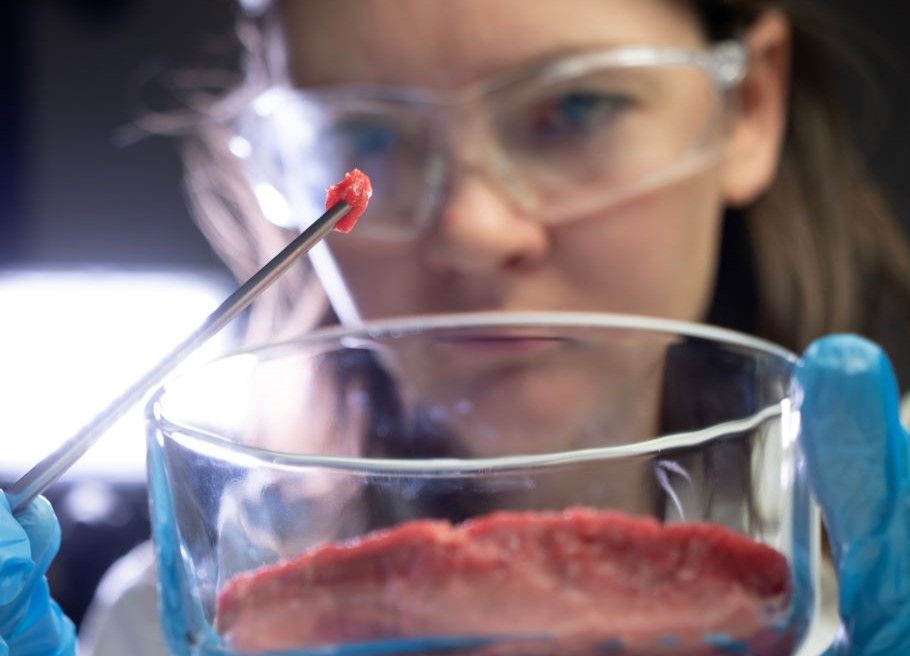Enhancing Global Food Safety Compliance Through ISO 22000
By Jacqueline Southee
The key responsibility of the food industry is to make, distribute, and deliver safe food, and there are standards to meet and regulatory requirements to ensure this. However, the legislative landscape is becoming increasingly more complex. The expansion of the global food supply chain across borders introduces the need to meet both national and international regulations, and rising concerns about traceability, sustainability, environmental impact, and ethical sourcing bring additional obligations to an already complex situation for the food producer.
The key element of the ISO management system approach is that it adopts a process approach, as opposed to the more commonly used checklist approach
A food safety program that is the sole responsibility of the QA Manager or a food safety system that relies on a “checklist approach” may not be sufficient to remain fully compliant in today’s changing environment. An effective alternative is a robust Food Safety Management System (FSMS) standard such as ISO 22000 that offers a flexible and comprehensive risk-based approach that can help companies throughout the supply chain do just that.
Originally published in 2005, “ISO 22000; Food Safety Management Systems – Requirements for Any Organization in the Food Chain” was developed with the intention of providing a globally harmonized FSMS standard that could be used by any company of any size in any part of the supply chain. Built on the success of the original quality Management System Standard (MSS), ISO 9001, and based around CODEX HACCP, it defined an optimized process for controlling food safety risks within a management system framework. It defined a system for managing food safety that required the commitment of senior management and the engagement of the whole company in a PDCA (Plan, Do, Check, Act) process of control, monitoring, measuring, and review that also promoted customer satisfaction and business success.
In 2018, after years of successful implementation, ISO 22000 was updated to meet the evolving needs of the industry, making it more relevant to the global supply chain, and re-written to the ISO Harmonized Structure (HS). The result is an insightful effective FSMS framework that safeguards food safety both on the “shop floor” as well as at the corporate level.
While certification is voluntary, more than 45,000 ISO 22000 certificates have been registered for 50,000 sites, making it the most widely used FSMS worldwide.
Leading from the Top: Food Safety Culture
The key element of the ISO management system approach is that it adopts a process approach, as opposed to the more commonly used checklist approach. In ISO 22000:2018, the holistic approach starts with management commitment and the need for a well-defined food safety policy, which must be communicated throughout the company so that team members are aware of the food safety goals and their role in achieving them. The essential elements of leadership, communication, competence, and engagement in ISO 22000 lay the foundation for the development of a positive food safety culture, which is integral in reducing potential and preventable food safety incidents. Many regulatory agencies recognize the importance of food safety culture and the role of the human element in maintaining food safety. This includes the U.S. Food and Drug Administration, which places emphasis on management responsibility and the training of personnel in the Food Safety Modernization Act’s (FSMA’s) preventive controls rules, and the more recent requirement for a positive food safety culture and its role in reducing the risk of unpredicted hazards.
Foundations of Food Safety: HACCP
CODEX HACCP is considered the essential element for all food safety systems and the General Principles of Food Hygiene (CODEX GPFH) describes the essential hygiene measures and food safety controls that are accepted as the foundation for food safety management by most national food laws and government authorities.
ISO 22000 incorporates CODEX HACCP but goes beyond the current CODEX GPFH by defining additional controls and preventive measures to secure the safety of the manufacturing process. CODEX GPFH does not separate HACCP controls from the Good Hygiene Practices , whereas ISO 22000 defines Operational Pre-Requisite Programs and Pre-Requisite Programs as additional controls to minimize risks and control identified hazards that could be introduced from the environment, external factors, cross-contamination, and people, etc. Compliance is maintained by planning, monitoring, verification, and documentation and improved by internal audits and management review. These additional controls align ISO 22000 with FSMA which defines the need for similar risk-based preventive controls. and is the reason regulatory authorities such as the EU refer to ISO 22000 to ensure that all the criteria for food safety are met.
Supply Chain Approach
In today’s world, a company cannot confine its concern for food safety to just its own operation. Global food safety includes multiple stakeholders and food safety hazards that can occur at any point along the increasingly complex supply chain. Supply chain transparency is maintained in ISO 22000 through interactive communication up and down the supply chain, verifying and monitoring suppliers, knowing when and how food safety hazards are controlled, ensuring the traceability of raw materials, and identifying and monitoring end-user requirements.
Sustainability and ESG Incorporated in the Standard
Sustainability, social responsibility and other ESG obligations are now adding complications to the compliance needs of the food industry and while they do not represent regulatory obligations, some are becoming incorporated into regulatory initiatives. ISO, as an organization, is aligned with the United Nations Sustainability Development Goals (USDG) and offers environmental , occupational, and other food safety management system standards to help companies achieve their sustainability goals.
GFSI Global Recognition
The Foundation FSSC developed FSSC 22000 as a certification program to add ownership and governance to ISO 22000 and to provide a global compliance program and other missing elements to achieve GFSI recognition. By adopting FSSC 22000, organizations can leverage all the benefits of ISO 22000, GFSI and global recognition.
Harmonized Approach to Achieve Compliance: ISO 22000
ISO 22000 ensures a harmonized approach to achieving compliance with global food safety requirements. In addition, it offers the added benefits of improved business performance, increased customer satisfaction, and a positive financial return essential to the success of a business in today’s competitive climate. Investment in ISO 22000 provides optimal risk management, better use of resources, reduction in waste, international recognition, global compliance, and, most importantly, safe sustainable food production for companies everywhere.
About the Author
Jacqueline Southee is the North American Representative for Foundation FSSC, the owner of the FSSC 22000 certification program for international food safety and the FSSC 24000 certification program for social management systems. Based in Washington DC, she works to build a broader understanding of how FSSC 22000 certification and the ISO management system approach can contribute to global harmonization, forge international compliance and help companies achieve the UN sustainability goals. A native of the UK, Jacqueline has a PhD in Animal Science from the University of Nottingham and a background in international business development.

-
 FeaturedRisk management
The Cost of a Breach: What a Cyberattack Could Mean for Food Safety Recalls
FeaturedRisk management
The Cost of a Breach: What a Cyberattack Could Mean for Food Safety Recalls
-
 FeaturedRisk management
Securing the Food Chain: How ISO/IEC 27001 Strengthens Cybersecurity
FeaturedRisk management
Securing the Food Chain: How ISO/IEC 27001 Strengthens Cybersecurity
-
 FeaturedRisk management
Revolutionizing Food Safety Training: Breaking Out of the “Check-the-Box” Mentality
FeaturedRisk management
Revolutionizing Food Safety Training: Breaking Out of the “Check-the-Box” Mentality
-
 GFSI Standards
GFSI 2025: Building Trust, Tech-Forward Solutions, and Global Unity in Food Safety
GFSI Standards
GFSI 2025: Building Trust, Tech-Forward Solutions, and Global Unity in Food Safety
-
 FeaturedFood Safety
Integrated Pest Management: Strategies to Protect Your Brand’s Reputation
FeaturedFood Safety
Integrated Pest Management: Strategies to Protect Your Brand’s Reputation
-
 FeaturedFood Safety Culture & Training
No Open Door Policy: Challenges That Impact Pest Control in Food Processing Plants
FeaturedFood Safety Culture & Training
No Open Door Policy: Challenges That Impact Pest Control in Food Processing Plants




